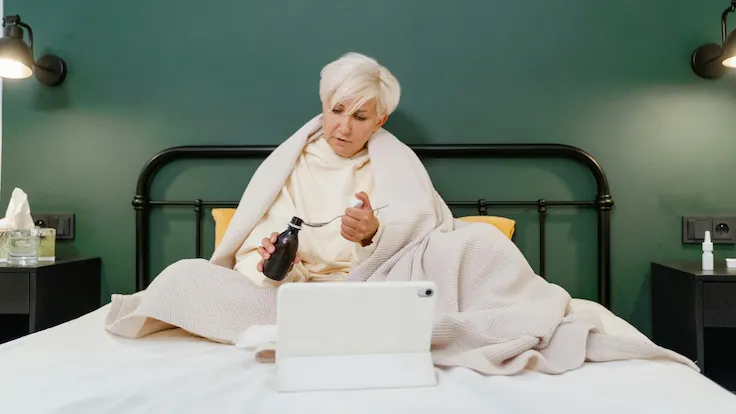Recover from Human Papillomavirus (HPV) with Dimer Health once you leave the hospital
HPV, or Human Papillomavirus, is a common virus that can cause cervical, vaginal, vulvar, and anal cancers, as well as genital warts. Post-acute care after hospitalization for HPV-related cancers is important to ensure that the cancer is fully treated and to prevent recurrence.
Get a personalized care plan and 24x7 clinical support until you fully recover:
Schedule your video call with one of our experienced providers
We will create a personalized core plan and set follow up appointments as needed
You will have 24x7 support for any question via phone, text or web app
We accept most insurances and currently available in New Jersey and New York
How it works
What is HPV
Human Papillomavirus (HPV) is a group of more than 100 related viruses, with several strains that can cause health problems, including genital warts and various forms of cancer such as cervical, anal, and oropharyngeal cancers. HPV is the most common sexually transmitted infection, often spread through direct skin-to-skin contact during vaginal, anal, or oral sex with someone who has the virus. It's possible for HPV to be transmitted even when an infected person has no visible signs or symptoms.
Most people with HPV do not develop symptoms or health problems, as the immune system typically clears the virus naturally within two years. However, in cases where the virus does not clear, it can cause genital warts, or more seriously, lead to cancer. Preventative measures include HPV vaccination, which is recommended for preteens and can also be given through the mid-20s to prevent the most dangerous strains of the virus. Regular screening, such as Pap tests for women, is crucial for detecting changes in the cervix that might indicate the presence of HPV or early signs of cervical cancer.
Please call or book an appointment with us if you think you have HPV or are recovering from it
HPV Recovery Tips
Recovering from HPV (Human Papillomavirus) treatment after a hospital discharge generally focuses on managing symptoms and monitoring for any potential complications or recurrence. Here are some helpful tips for a smooth recovery:
Following these tips can help you recover more comfortably and effectively from HPV
- Follow Your Doctor’s Instructions: Adhere strictly to any guidelines or treatments your doctor has prescribed. This could include topical medications, cryotherapy, or other procedures to manage symptoms like warts.
- Keep the Affected Area Clean and Dry: Hygiene is important, especially if you've been treated for warts. Cleanse the area gently with mild soap and water, and keep it dry.
- Boost Your Immune System: A strong immune system can help your body clear the virus more effectively and reduce the frequency of outbreaks. Eating a balanced diet rich in fruits, vegetables, and whole grains, getting regular exercise, and sufficient sleep can all contribute to a healthy immune system.
- Avoid Smoking and Limit Alcohol Consumption: Smoking can weaken the immune system, and excessive alcohol consumption may affect your body’s ability to fight the HPV virus.
- Practice Safe Sex: Using condoms and dental dams can help reduce the spread of HPV to sexual partners. HPV can be transmitted through skin-to-skin contact, so it’s important to discuss your HPV status with your partners.
- Manage Stress: High stress levels can weaken your immune system and affect your body’s response to HPV. Engage in stress-reducing activities like meditation, yoga, or regular physical activity.
- Monitor for Changes: Keep an eye on any changes in your body, especially at the site of any treated areas. Notify your doctor if you notice new warts, unusual symptoms, or if existing warts grow back.
- Regular Screenings: Follow through with regular medical screenings such as Pap tests (for cervical HPV) or other recommended follow-ups. These are crucial for catching any changes early, which can be key in preventing more serious conditions like cancer.
- Educate Yourself About HPV: Understanding your condition can help you manage it better and communicate more effectively with your healthcare provider and partners.
- Attend All Follow-Up Appointments: These appointments allow your healthcare provider to monitor your recovery and make any necessary adjustments to your treatment plan.
By incorporating these tips into your recovery process, you can help manage your HPV treatment outcomes more effectively and maintain your overall health.
Don't navigate your recovery journey alone.
Let us be there for you every step of the way.


